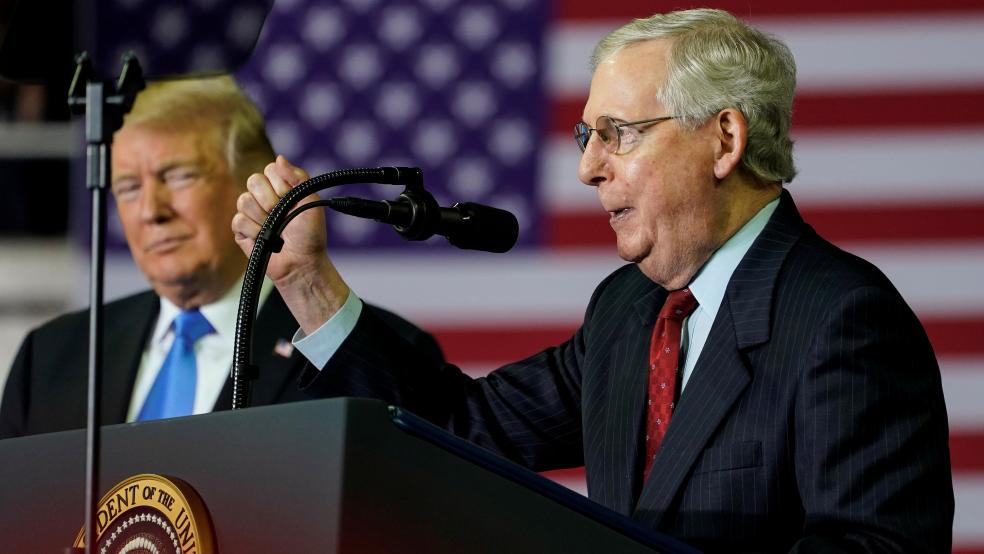The Senate on Thursday approved the massive two-year budget deal passed by the House last week. President Trump is expected to sign the bill, which was negotiated by House Speaker Nancy Pelosi and Treasury Secretary Steven Mnuchin over the last few weeks.
The Senate vote was 67-28, with more Democrats (38) voting for the bill than Republicans (29). Five Democrats voted no, along with 23 Republicans, who nevertheless got a “majority of the majority” to support the package.
Senate Majority Leader Mitch McConnell said the deal wasn’t perfect but reflected the comprise required by divided government. “This is the deal the House has passed. This is the deal President Trump is waiting for and eager to sign into law. This is the deal that every member of this body should support,” McConnell said before the vote.
What the deal does: The bill sets discretionary spending levels at roughly $1.37 trillion per year in 2020 and 2021 and suspends the debt ceiling through July 2021. The spending levels are about $320 billion higher than those called for by the Budget Control Act, which expires in 2021 and will therefore no longer play a role in the budgeting process (assuming it’s not revived). The agreement will add an estimated $1.7 trillion to the national debt over the next 10 years, according to the Committee for a Responsible Federal Budget.
What the deal does not do: The bill doesn’t actually fund the government. Instead, it defines total spending levels that lawmakers will use to write 12 annual appropriations bills when they return to Washington after Labor Day. The House has already passed 10 of the 12 bills, although they will likely need to be revised in light of the budget deal. Congress will have just a few weeks to pass all of the appropriations bills before the new fiscal year begins in October. If they fail to do so, lawmakers will need to pass stopgap spending measures until any disagreements that crop up can be resolved. Funding for Homeland Security, which involves the border wall with Mexico, is one area that could potentially cause problems in September.
The tea party’s last gasp? Conservative lawmakers and advocacy groups criticized the deal due to its effects on the debt and deficit. Sen. Rand Paul of Kentucky, one of the Republicans who voted against the bill, said Wednesday that the agreement “marks the death of the tea party” and fiscal responsibility. “Can you hear it? Can you hear the somber notes, the feet shuffling, the solemn tones ... It’s a dirge, a funeral march; it’s the death of a movement,” Paul said on the Senate floor.
“A once-proud movement with hundreds of thousands of people gathered on the National Mall, it’s the death, it’s the last gasp of a movement in America that was concerned with our national debt,” Paul added.
What comes next: Although there may be disputes about spending levels for specific programs such as border security, overall spending levels for the next two years are pretty well set – along with big jumps in deficit spending and increases in the national debt. Trump has hinted that he will cut spending if he wins reelection, but for now the president and the majority of lawmakers on Capitol Hill seem happy to avoid further fiscal fights. “Budget Deal is phenomenal for our Great Military, our Vets, and Jobs, Jobs, Jobs!” Trump tweeted Thursday. “Two year deal gets us past the Election. Go for it Republicans, there is always plenty of time to CUT!”



